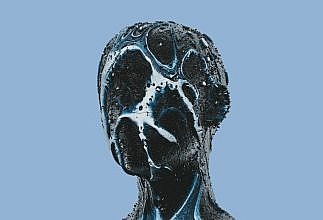Before this post, you may need to take a look at this one:
Existential Anxiety is Part of Being Human – An Introductory to Existential Psychotherapy
1: Case Recap
Age: somehow 22 years old
She’s a psychology college student.
(Client’s description in her own words)
For the past eight years, starting around ninth grade, I have struggled with severe sleep disturbances. I am usually sleepy until noon because of many interruptions during the night. My night sleep is averagely only four to five hours of fragmented rest. My dreams are vivid, often disturbing, and resemble nightmares—frequently involving animals such as snakes attacking me. I talk in my sleep and often wake up feeling fatigued and mentally drained.
These sleep issues have led to emotional difficulties. I experience recurring waves of sadness and hopelessness. Sometimes the sadness overwhelms me to the point of tears. My energy fluctuates dramatically—on rare occasions, I feel motivated and capable, but most of the time, I feel down and emotionally flat. I’ve also experienced episodes that resemble panic attacks, during which I lose sensation in my muscles and feel as though I’m dying.
My concentration and memory have suffered as a result. I find it very difficult to focus during lectures, especially when I am seated for long periods or when the subject is not particularly engaging. This has negatively impacted my academic performance, especially during quizzes and assessments.
Despite trying to manage my routines—including regular exercise, dietary changes, and writing to help organize my thoughts—I still feel overwhelmed. I often experience impulsive eating, difficulty managing distractions, and behavioral struggles such as excessive screen use. I’ve also noticed that carbohydrates make me sleepy, while coffee (which I consume twice daily) is often the only thing that helps me stay focused.
I have tried to communicate these issues with my family, but I often feel dismissed or not taken seriously. The last psychiatrist I visited prescribed medication for stress, which helped temporarily, but did not address the deeper issues. Physically, I’ve been examined by doctors and was told there are no underlying medical concerns.
Emotionally, I feel lonely, fatigued, and at times, hopeless. While I find comfort in solitude, I also fear being alone for too long. I am asking for help now because I want to improve my mental health, develop a healthier sleep routine, and regain control over my daily life and academic goals.
2: Existential Themes Present in Your Narrative
| Presenting Issue / Symptom | Underlying Existential Dimension |
| Severe sleep disturbances, nightmares | Fear, unconscious existential conflict, threat to psychological safety (symbolized by attacking snakes) |
| Vivid, disturbing dreams involving animals | Symbolic confrontation with primal fears or unresolved internal conflict |
| Emotional waves of sadness and hopelessness | Crisis of meaning, possible existential depression, inner conflict about purpose |
| Panic attacks, fear of dying, physical dissociation | Death anxiety, fear of annihilation or loss of control |
| Energy/motivation fluctuations | Ambivalence toward freedom and responsibility; tension between potential and powerlessness |
| Poor concentration, memory issues | Disconnection from authentic engagement; existential boredom or lack of meaning in activities |
| Impulsive eating, screen overuse | Existential avoidance or numbing — escaping awareness, avoiding decisions |
| Feeling dismissed by family | Existential isolation, lack of validation, and longing for meaningful relational contact |
| Comfort in solitude vs. fear of it | Ambiguity between need for freedom and fear of being alone — classic existential tension |
| Academic struggles, low performance | Conflict between external demands and internal values; possible lack of authenticity |
| Reliance on coffee for function | Coping strategy to force engagement with life in absence of intrinsic vitality |
| Lack of meaning despite healthy routines | Pointing to deeper existential questions — “I’m doing all the ‘right’ things, but why?” |
3: Existential Solution Path (for the Case)
This is not a quick fix, but a shift in how she relate to her suffering:
- Explore meaning in your symptoms
→ What might your insomnia or nightmares be telling you about unacknowledged fears, traumas, or conflicts?
- Engage your existential questions
→ Use journaling, therapy, or deep conversation to explore: What is meaningful to me? What do I fear losing? What would an authentic life look like?
- Embrace freedom with responsibility
→ Your behavioral patterns (screen use, impulsive eating) may be escapes from overwhelming choices. Ask: What am I avoiding? What small responsibility can I reclaim today?
- Confront death anxiety openly
→ Write about death. Meditate on it. Ask: How would I live if I accepted mortality fully?
- Find or create community
→ Isolation is part of the human condition, but meaningful relationships ease it. Seek quality over quantity — even one honest connection matters.
- Consider existential therapy or existential journaling
→ Regular writing prompts: “What do I value?”, “What am I avoiding?”, “What am I afraid of?” and “What gives my life meaning?”
In the next post I try to examine “What is going on in an Existential Psychotheraputic session?”



